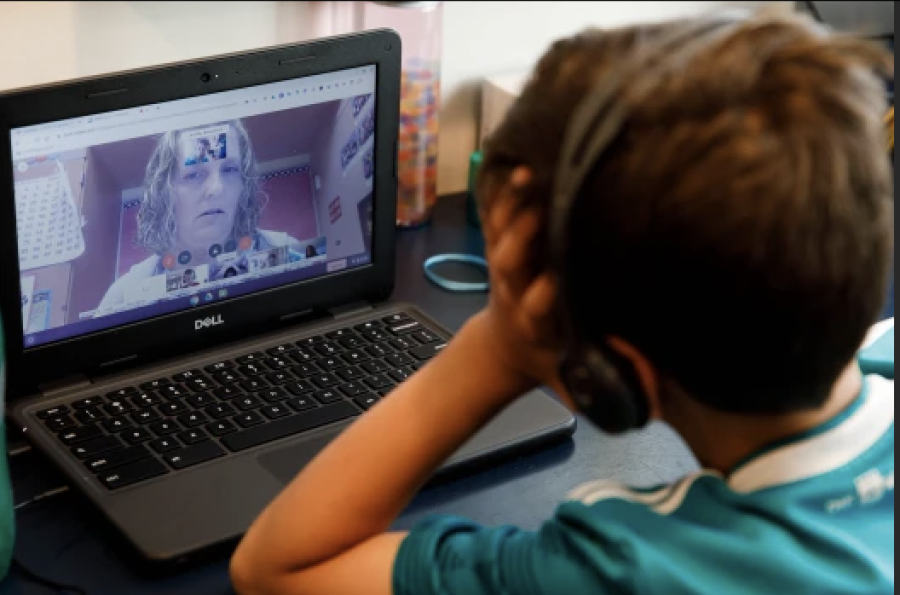How Covid Really Impacted Our Education
The worldwide pandemic that occurred in 2020 not only affected millions of people physically and mentally, but also had a major impact on education. In March 2020, lives took a drastic turn and lifestyles had to make a big change. Students were faced with doing online learning for an entire school year, which had its ups and downs. Some teenagers enjoyed the free time to do hobbies or other activities they normally wouldn’t have had time to do while other younger students may have struggled to learn without being in a more strict and affirmative environment. As for the administration, many schools across the U.S. have faced severe staff shortages and high absence rates in addition to a surge of Covid cases that happened at the end of 2021. On top of that, students and educators are still continuing to struggle with mental health issues as well as lost learning time.
A lot of young students across the globe struggled due to having to switch gears and learn everything on their own. According to CBS News, many kids fell behind in their academics, “70-80% of the second and third graders that are in the schools that we’ve been supporting are two or more grade levels behind. These second graders and third graders, if they don’t catch up quickly, they’re going to go into middle school and they’ll be significantly behind.” Tabetha Young, who has an eight year old son struggling, noted, “It put everybody behind. This is how I knew he was behind – because he answered a question that I knew he knew. It was a question that I knew he knew, but he didn’t recognize it, and that was a problem”. The principal of Martin Luther King Jr. Elementary, Roma Groves-Waters added, “I averaged about 100 students a day not attending Zoom’s because either their parents had to work, or they couldn’t have good WiFi connections in their buildings – even though we did give everybody computers and WiFi hotspots. Sometimes, it just didn’t work.We also have about 60% of the students not reading at or above grade level because of the learning loss. So, we lost a lot of time.” Overall, many young kids were deeply affected by online learning and it will likely have an impact on them for the future.
Teenagers were also affected by quarantine and online learning. Vivian Kargbo, a parent of a student, believed her daughter’s school district was doing the right thing by keeping classrooms closed and she thought extending school closures through the spring was what was best to keep kids safe. However, her daughter became depressed and didn’t do school work or pay attention in classes. She nearly failed all of her eighth grade courses, despite being a former honor roll student. Kargbo expressed, “She’s behind. It didn’t work at all. Knowing what I know now, I would say they should have put them in school”. All in all, many different types of students were in one way or another affected academically due to COVID-19.
As reported by AP News, “Nationally, kids whose schools met mostly online in the 2020-2021 school year performed 13 percentage points lower in math and 8 percentage points lower in reading compared with schools meeting mostly in person, according to a 2022 study by Brown University economist Emily Oster”. Many parents of students have also expressed their regret and wish that their children were able to learn in a real classroom. Eric Conti, superintendent for Burlington, Massachusetts emphasized, “I can’t imagine a situation where we would close schools again, unless there’s a virus attacking kids”.
In conclusion, the pandemic took a huge toll on both students and teachers and has impacted learning greatly across the globe. Despite continued issues and learning deficits, , there is still hope for the future that students will catch up and thrive academically.






